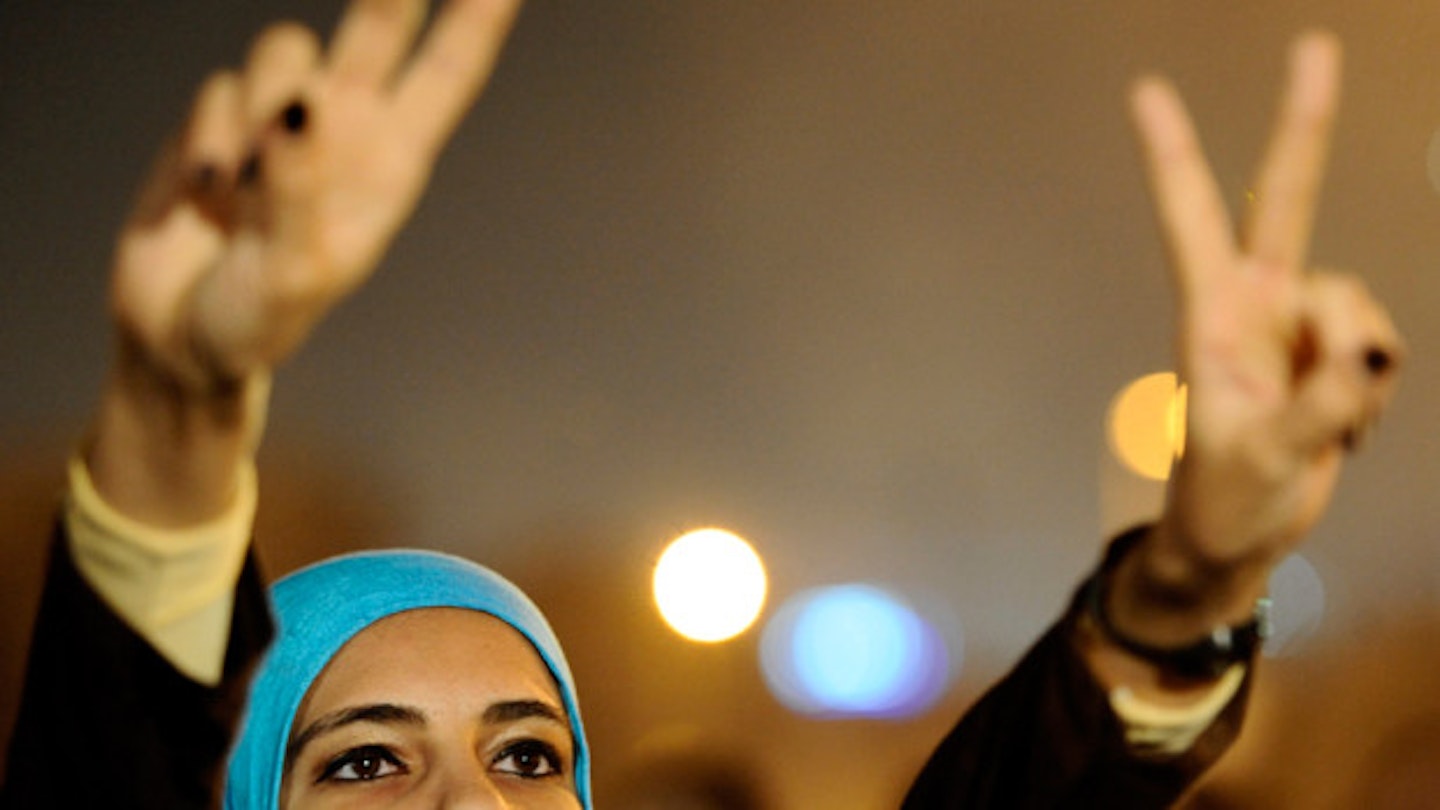Despite having spent the majority of my life in London, Egypt has always been home for me. The hot, clammy pollution smell that hits your nostrils as soon as the plane doors open; the toothless smiling man in a robe who looks after our building that we call the ‘bawab’; the friendships that are much, much more like family than anything else; the beautiful beaches; the charming hospitality that envelopes everyone.
It was this charm and humour that first characterized the revolution. Five years ago this week, men and women from all walks of life stood side by side in Tahrir Square. With certainty I can say it was the first time rich and poor, old and young, male and female had stood in equality side by side. With certainty it was the first time they had ever rallied around a common cause.
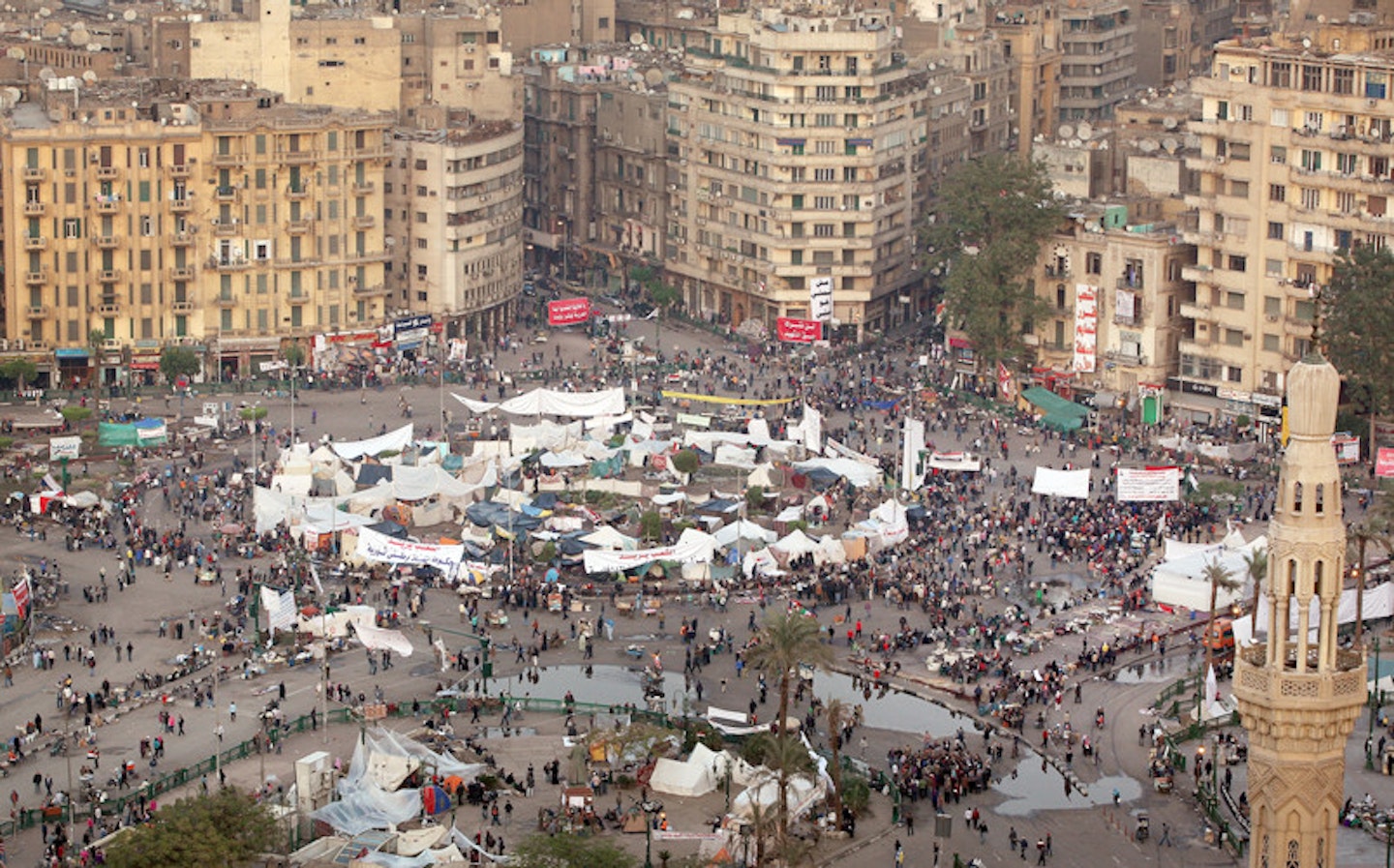
Watching anxiously, bursting with pride from my bedroom in London, I remember smiling, laughing to myself at how even in the face of all the shit that they were being dealt, they were still able to bang their tablas and make up rhymes and echo them loud into the night(s) they spent in protest, joined by the hope that maybe their united voice could actually drive change.
One of my best friends, Habiba, who was born and raised in Egypt explained what the protests, and taking part in them, meant to her:
‘It was the first time I had the slightest interest in politics, the first time I realized how deeply embedded corruption is in all of our systems and processes. Being from the minority 2% of privileged Egyptians I was oblivious to the struggle the other 98% of the population faced, it was the first time I cared enough to join a protest. It was the first time I stood literally shoulder-to-shoulder with a bus driver for a common cause. It was the first time I realized how more than a million people standing in one place actually looked and felt like. The first time I smelt tear gas, the first time I got sexually harassed.’
Indeed, a recent study found that 49.9% (45 million) of Egypt’s overall population live in poverty, while 26.3% live in extreme poverty. There is not much of an in between. The chasm between ‘us’ and ‘them’ personified in that although statistics say 95% of women in Egypt have had female genital mutilation, not a single person I, or pretty much anyone I know in Cairo – and that’s a lot- have ever come across anyone that has undergone FGM – a practice that is most often carried out in underdeveloped, rural areas where women are viewed as merely vessels for childbirth.
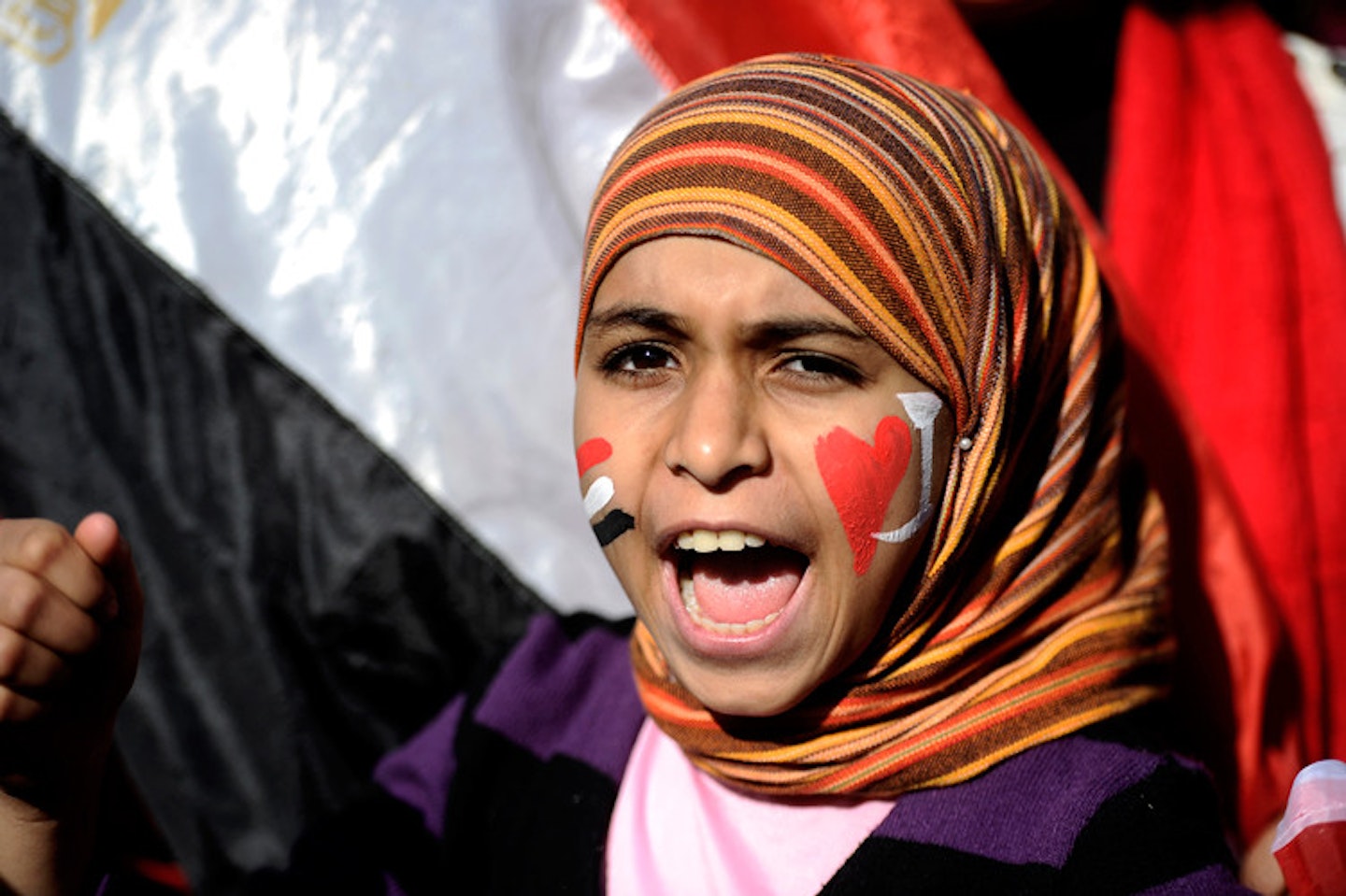
Inequality is rife in Egypt, and for none more so than for women. In 2013 Egypt was named ‘worst for women’ out of 22 countries in the Arab world. Considering women in Egypt are actually allowed to work, drive, wear (more or less) what they want and have ample more rights than women in other Arab countries (for example Saudi Arabia where it’s illegal for women to drive, or to travel without the explicit written consent of their husbands or male guardians), this is actually a really, really concerning statistic. Perhaps due in large part to the fact that 99.3% of women in Egypt have reported experiencing sexual harassment. The latter is a statistic that sadly doesn’t at all surprise me.
So the revolution, the one that was supposed to drive huge change, what effect, if any, did it have on young women living in Egypt?
‘I think January 25th really mobilized a lot more women to be vocal and kind of break through psyches of fear and to really speak out against what they believed was wrong and needed to change in the country,’ explained Dina Amer, an Egyptian journalist and part of the team that worked on Emmy award winning documentary The Square, a film depicting the Egyptian revolution.
‘The issue of sexual harassment has been an on-going struggle for the majority of women and was a big concern during the time of the Jan 25th protests. The outrage it caused formed a movement to stop sexual harassment in the Egyptian streets and those movements - such as harassmap - are still in existence post revolution,’ added Habiba.
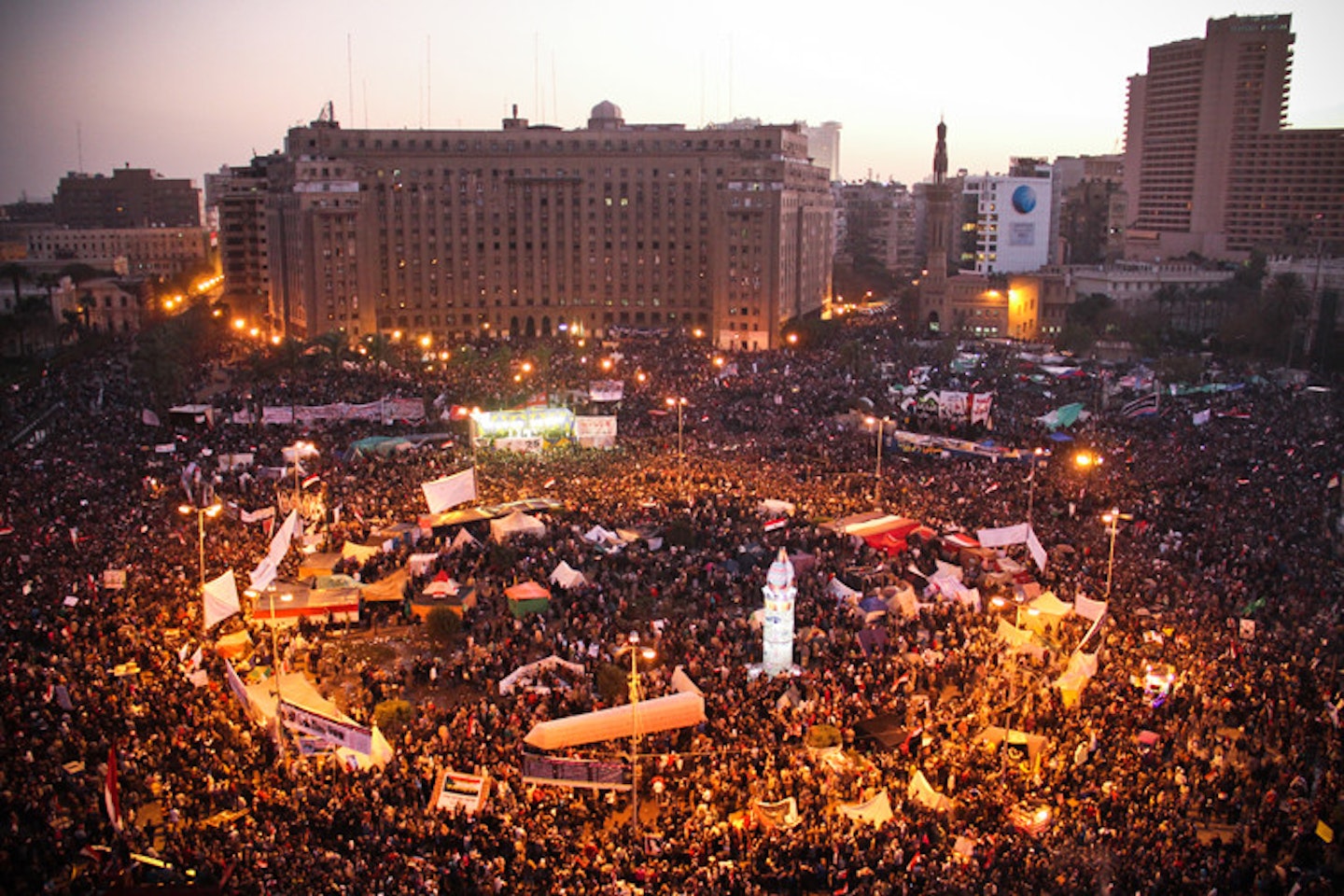
Harassmap - a Cairo-based rights group that campaigns against harassment – recently joined forces with Uber Egypt, in an effort to raise awareness and combat sexual harassment. Particularly necessary, perhaps due to the fact that about 57% of the 99.3% of women who reported being sexually harassed in Egypt - cited drivers of public transport – including taxis and bus drivers as offenders. The service has reportedly had good feedback so far, with Anthony El Khoury, Uber Cairo’s General Manager hopeful the education will ‘extend past the drivers to their family and friends, encouraging the wider community to join a nationwide movement for taking positive action against sexual harassment.’
‘I hate to give in to these Orientalist concepts of the Middle East and Egypt but we have to be honest with ourselves and the ills of our society… women on the street are being attacked. They can’t even walk in the street without being under threat of being groped and harassed and maybe even raped. It’s horrible and I’m not exaggerating; this is the truth,’ stressed Dina.
And ultimately the double standards and patriarchal view on women is a deeply rooted mentality. ‘I’ve been told several times not to smoke by complete strangers in the street,’ said 26-year-old Alya, who was born and raised in Egypt. ‘A man even stopped his motorcycle in the middle of the road once to tell me that I should be embarrassed and that what I was doing was wrong because I am a girl.’
In this regard, women are often regarded as second-class citizens, and those who do get the opportunity to work have to try extra hard to prove themselves. ‘Especially if it's not a "female job”’, explains 27-year-old Ghufran, ‘you work triple as hard, fighting cultures and norms and mind-sets just to be overshadowed with some guy in a bad-tailored suit.’
A whistle here or a catcall there, or the ever present stares, for many, sexual harassment has become just part and parcel of Egypt’s streets, an inevitably we have come to be simultaneously saddened yet not at all surprised by. For the 2% of Egypt’s population that lives above poverty line, it’s gated compounds and CCTV’ed buildings, chauffeured from one Westernized interior to another, precautions – pepper spray, a scarf to drape around your bare shoulders and etc – for when passing through the outside world.
‘Apologies for how classist this is going to sound,’ starts Ghufran, ‘but coming from a well-off background we basically only got affected by having to stay-in-doors while the city was unstable outdoors. The majority of Egyptians who actually felt the effects of unjust society [and the repercussions of after] are mostly the poorer backgrounds.’
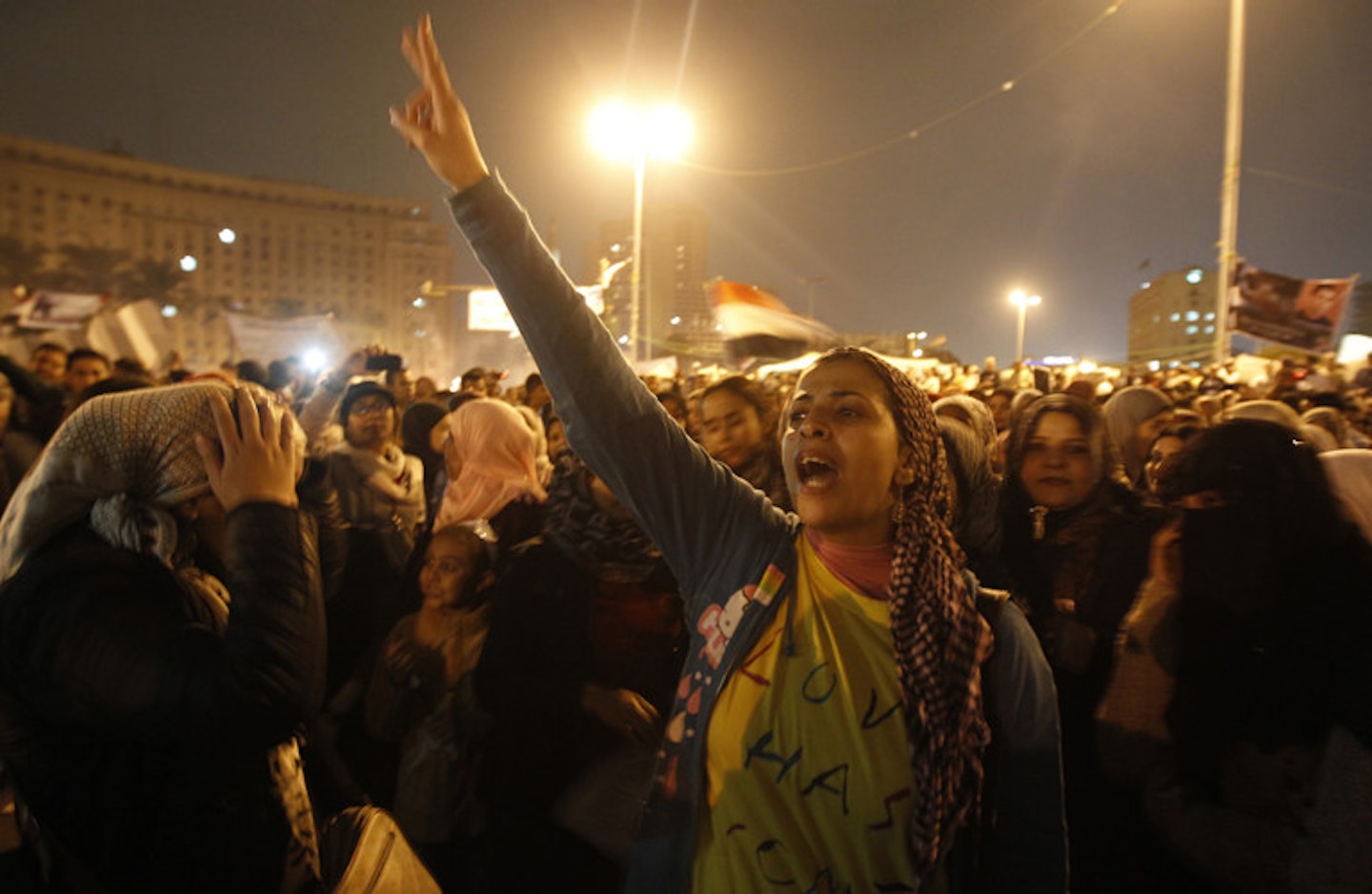
In the unstable days post-revolution, when prisons opened their doors, the museum was ransacked and etc, Egypt was essentially in anarchy. I have family friends whose children have been kidnapped, houses broken into. Every single male I know in Egypt – regardless of age - has at some point in the last five years stood outside their house with a gun, in an effort to protect their family. I remember visiting for the first time a few months after the revolution, getting into the car with my driver (everyone has a driver, a maid, a cook and etc) who picked me up from the airport, brandishing a gun which he now carried in the car for safety. Everyone else had one in their cars, too.
The situation in Egypt is infinitely better now. Except the injustices still reign pretty supreme, for both men and women. ‘The country is under a chokehold. It’s not just focused on women but men, women, all of society that is living in Egypt at the moment has been silenced,’ says Dina.
‘I have dear friends who are women who are in prison irrespective of them being female or not just because they wanted to defend what they believe is right and they protested ‘”without a permit’”, she continued. ‘I think it’s a travesty not just for women, it’s a travesty for anyone who’s living in Egypt, who lived the beauty and the possibility of 2011 and understood that as a young person we had a chance to really build a different society and that chance has been crushed. Five years down the line it’s obvious that it’s been crushed for the moment. The repression is at a height that it’s never been before.’
But the strides are being made, however small. Although cases of sexual harassment are still rife, at the very least sexual harassment is now considered a crime, with a 2014 law penalizing offenders with up to six months in jail or a fine of up to 3,000 Egyptian pounds (around 300 sterling). Implementing this does, of course, comes with its own set of challenges.
‘The revolution empowered many women to not only take to the streets and topple the regime but also run for office and parliamentary elections,’ explained Habiba. Evident in that the recently elected new parliament witnessed the highest representation of women in the country's history, with women garnering 89 out of the new parliament's 596 seats. In 2014 females also accounted for 11% of entrepreneurs in Egypt – up from 3% in 2006. Overall not amazing by any means but definitely strides in the right direction. If not least for the take no shit mentality that seems to be deeply resonating.
‘There’s something in the consciousness that has changed since 2011,’ explains Dina. ‘I think we’re going to keep facing that consciousness, that seed that sparked on January 25th until there are legitimate changes that happen in the country that improve the conditions and address some of the aspirations and demands of that revolution,’ she adds. ‘They are valid, and they still stand, and they speak to the people of Egypt.’
Indeed, she voices the frustration of many who had hoped that the revolution would bring with it positive change for the country.
Sometime in the wake of the revolution, bursting with pride, I wrote: ‘The Egyptian people – a population often riddled with poverty and lack of education – have, against the odds, learnt that anything is possible if enough people want it enough, and have the guts, and the balls, and the patience to fight for it.’
It very briefly but very tangibly did feel like a win.
Five years on and it feels, almost overwhelmingly like those hopes have been dashed. Five years on, people are still getting arrested for doing not much more than simply talking about politics, while people everywhere are having their apartments raided, computers and Facebook accounts checked and worse, in the name of protecting the country from threat.
But ultimately, just like anywhere else in the world, for those that wish to, and can afford to adopt a see no evil, hear no evil mentality, the show can and does go haltingly on.
Like this? You may be interested in…
Why Is Virginity Testing Still A Thing In So Many Parts Of The World?
Follow Alya on Twitter @moorizZLA
This article originally appeared on The Debrief.
